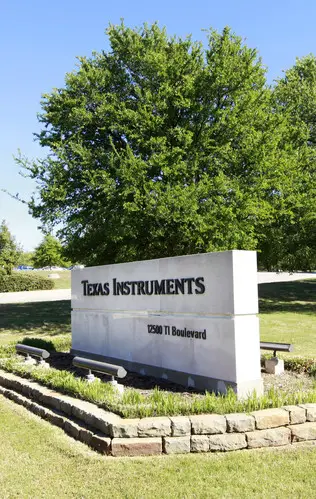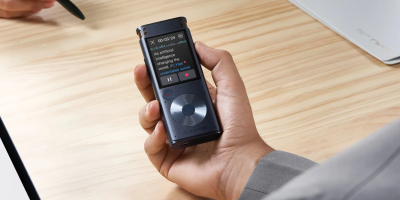If you were to ask certain people about the state of Texas Instrument’s present and future in mobile you’d think the company was dying, but the fact is it’s still alive and kicking. While calculators and appliances are cool the money seems to be in mobile as one very major company looks like it could be buying Texas Instruments primarily for that reason.
Rumors have surfaced regarding a possible acquisition by Amazon, a newcomer to the tablet space but no stranger to devices. With the launch of the Kindle Fire series Amazon has gone with Texas Instruments exclusively. The original device housed the OMAP 4430 chipset while its successors are all sitting nice with OMAP 4460.
Texas Instruments would appear to be in a bit of trouble from the outside looking in. With Qualcomm maintaining a strong death grip on the mobile market and with very stiff competition from Samsung, NVIDIA and now the established player Intel coming with its Medfield series the embedded systems vendor has found itself in a very difficult situation.
For Amazon the situation couldn’t be more perfect. The retailer-turned-premium-content-provider has no problem going with the struggling rival of Qualcomm as it is not in the business of being a “me, too” player in the Android tablet space.
Amazon has showed it’s not interested in offering a traditional tablet experience with the Kindle’s heavily customized user interface, so it should come as no surprise that the company is looking to exclusively secure a partner which doesn’t currently fit inside the competitive landscape that is mobile processors.
The question becomes a bit different now — aside from possible savings on in-house chip production opposed to licensing, what does Amazon stand to gain from this deal? Well, it’s easy to forget that Amazon’s biggest competitor in perhaps Amazon’s most important field — the e-reader field — is doing pretty well for itself.
Barnes & Noble also employs Texas Instruments to power its e-reader tablets, and cutting the physical retailer off from that specific supply chain would appear to be a key move to make sure Amazon doesn’t lose a big chunk of that part of the market. It would be just as easy for Barnes & Noble to move over to NVIDIA, Intel, or Qualcomm, but we imagine it would’t be as cost-effective.
Cutting costs in this field is more important for Barnes & Noble than it is for Amazon as it has to deal with the inexact science that comes with offering the physical retail experience that Amazon has successfully avoided.
It wouldn’t be foolish to suggest that Barnes & Noble would be struggling in this space without its stores to help push the Nook line considering Samsung, Sony and others are struggling to compete with Amazon on the e-ink side of things.
But with this purchase would come the burden of an entirely different beast for Amazon. Texas Instruments has its hand in more than just mobile. If you own a microwave, a television, a Blu-Ray player, a clock or a washing machine chances are it’s being powered by embedded technology developed by Texas Instruments.
All of that would only add to the price for Amazon and the company simply doesn’t need all of that. The question, then, becomes whether or not TI is only looking to sell partially. Just as Motorola separated mobile from its other ventures TI could easily partition its company between embedded systems and mobile SoCs.
That scenario becomes even more desirable for Amazon and it would be a lot easier for them to bite that bullet and put Barnes & Noble into a pickle it might not be able to handle without a few road bumps.
In a statement, TI mentioned while it’s clearly dialing things back in the mobile market they still look to push OMAP for all electronics. It’s looking to support more rich experiences in the field of automotive computing, industrial applications, enterprise solutions, and more. TI certainly has more experience and a better shot at success in those fields, but whether or not those fields will be imperative to success is an entirely different question to answer.
But even if Amazon can’t secure a deal to buy part or all of Texas Instruments’ business neither party will suffer in the grand scheme of things. Amazon will either continue to license or attempt to build its own line of chipsets as we’ve seen the likes of Samsung and Huawei do, and TI will continue to thrive as the unsung hero for pretty much all of consumer electronics. One thing’s for sure, though — Qualcomm couldn’t be happier with the 48% it has in mobile chipset market share. [via TechCrunch]












LOLS. Mobile ASS.
It was just yesterday when the OMAP was “the” processor to talk about. Oh how times shift so fast!
Who ever imagined that an online bookseller would be a major hardware company?
Then again, who ever imagined that a search engine company, that became popular for its almost blank website with a search bar in the middle when everyone else had cluttered websites…would make the OS for this online bookseller?
Article I read earlier (can’t find it now) sait they were just after the chip division not Ann of TI.
Just the chip division http://thenextweb.com/insider/2012/10/15/amazon-in-talks-to-buy-texas-instruments-smartphone-tablet-omap-processor-activity-report/